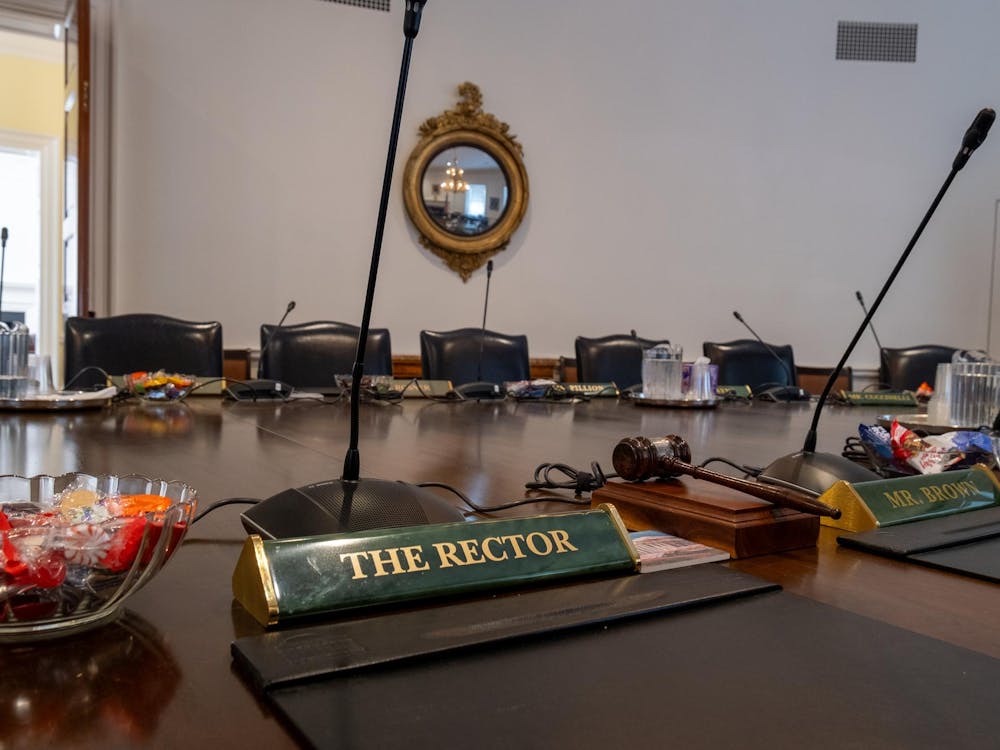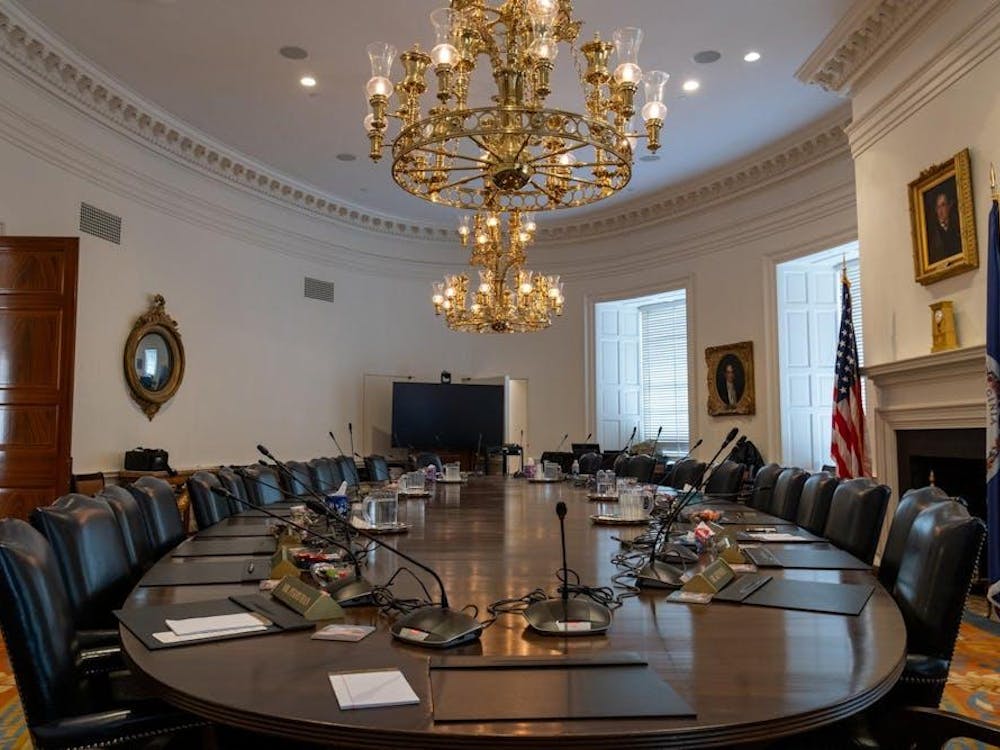More than 100 college and university presidents across the nation have signed a statement claiming that the current legal drinking age of 21 is not working and that they want to find a better solution. The discussion has been met with mixed reactions.
The movement is known as the Amethyst Initiative, launched by an organization known as Choose Responsibility., The initiative looks to administrators from U.S. higher education institutions to sign a presidential statement in support of opening the debate about the legal drinking age.
University President John T. Casteen, III has not signed the initiative, said Susan Bruce, director for the University’s Center for Alcohol and Substance Education. Bruce added that Casteen also has not refused to sign it.
In a “Welcome To Parents” speech Saturday, Casteen said he has yet to make up his mind about the Amethyst Initiative.
“I don’t know whether eventually I will sign this initiative or not,” Casteen said, according to a transcript of the speech. “It depends on whether they are able to develop and publish the evidence to prove there’s not a negative difference in the impact on young people. I’m not at this point persuaded that they have all their facts on the table.”
As Casteen considers the facts, Choose Responsibility is working to emphasize the importance of the debate to higher education administrators.
“We’re not calling for lowering the age,” said John McCardell Jr., former president of Middlebury College and current president of Choose Responsibility. “This statement doesn’t say anything about that; it just says we need to have a debate. We think there is general agreement that 21 isn’t working and that we need to work to change it.”
Thus far, 129 university presidents have signed the organization’s statement supporting the discussion about the drinking age, McCardell said. These presidents lead universities including Duke University, Syracuse University, Colgate University and Tufts University.
In a statement released by Colgate University President Rebecca S. Chopp about her decision to sign the Amethyst agreement, Chopp stated “signing the Amethyst Initiative letter is about joining other colleges in a call for a national discussion on the issue of alcohol use and abuse on our campuses. This is not an endorsement of lowering the drinking age to 18, but rather a statement that this discussion needs to be open and inclusive if it is to be productive.”
One of the Amethyst Initiative’s sharpest critics, however, Mothers Against Drunk Driving, believes the initiative is not simply about opening a debate, but about trying to lower the drinking age.
“Most people see it as the presidents liking to see the drinking age lowered to 18,” said Jeffrey Levy, a member of MADD’s national board of directors. “That is [also] our interpretation.”
Levy said although the Amethyst Initiative states only a goal of reopening the debate about the drinking age, the initiative actually wants “to re-open the debate to reverse the federal legislation.”
While McCardell and MADD agree excessive drinking on college campuses nationwide is a significant problem, they disagree about the correct course of action.
“We don’t think lowering the age will solve the drinking problem,” Levy said. “We think changing the environment at our colleges, which [currently] condone facilities and even encourages underage binge drinking, is the solution.”
Levy himself reached out to Casteen on behalf of MADD in an effort to persuade the University president not to sign the agreement.
“Instead of demanding that they lower the drinking age so they can duck the issues, I would like Casteen to stand up and say that underage and binge drinking are unacceptable behaviors he will not tolerate,” Levy said.
McCardell, on the other hand, said he wants the nation’s university presidents to take a more “realistic” approach.
“To think that abstinence, which is simply another word for prohibition, can be any more effective now than it was in the 1920s is to add an ignorance of history to other misunderstandings,” McCardell said. “That is why we are in such need of a public debate.”
Regardless of that pending national debate, Bruce wants to see more concrete research from the Amethyst Initiative before passing judgement on the issues raised by the two officials. “What’s not addressed in the Amethyst statement is what would happen if states started changing their drinking laws,” Bruce said. “What would be the negative impact of Virginia lowering the age to 18 when North Carolina doesn’t? Would we have students going across borders to get alcohol? That has not been addressed in the research that I’ve seen.”






